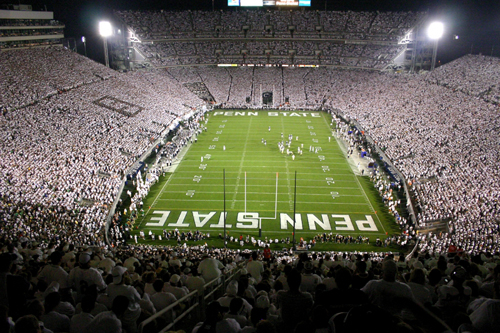Someone on Facebook posted this, in response to the ridiculous controversy over the speech made by football player Harrison Butker of the Kansas City Chiefs to the graduates of Benedictine College in Atchinson, Kansas.
Oh no, a catholic gave a pro catholic speech with catholic views to catholic students at a catholic school, the horror, the misogyny, the… idiots love to go out of their way to be offended. The same crowd that preaches acceptance cannot stand living in a world where other people aren’t like them apparently
I responded:
Agree. The same way a male state legislator with no medical training or background and expertise in psychology or physiology should not be telling parents what they can or cannot do to address a child’s issues with sexual identity. Nor should the same state politicians be telling libraries what books they can stock on their shelves. Or if people who are fearful of communicable diseases can wear a mask. Or if teachers can teach about the fundamentals of the U.S. economy before 1865. Idiots love to go out of their way to be offended.
I initially thought the entire “scandal” was just media masturbation: a trivial event and a trivial offense sparking trivial outrage and then trivial blow-back, and so on, with everyone losing sight of the utter triviality of the original event along the way. Harrison Butker is a nobody, a fucking football player, of no particular consequence, and certainly of no importance to culture or intellectual life in the U.S.
His comments were not as anodyne as his defenders would have it, nor as caustic as his critics would have it. They are just unbelievably mediocre. Seriously? In this day and age? Women should stay home and cook and clean and have babies?
He says:
On the day before Mother’s Day, he said, “I can tell you that my beautiful wife Isabelle would be the first to say that her life truly started when she began living her vocation as a wife and as a mother.
I can’t think of anything more deeply insulting to Isabelle. You had no life before you met the wondrous Harrison Buttkiss? You were not a whole person, because this amazing, virile, intelligent, paragon of testosterone had not yet laid you?
He went further, attacking diversity and inclusion in general, gay marriage, and so on– the usual litany of ignorant white male grievance. He attacked abortion, which is odd because his party has left him in the dust on this issue. Have you checked with Mike Pence lately? And what other bedrock principles are you and your party eager to shed the moment they become politically inconvenient?
Shame on you Benedictine College! Not because Butkisser gave you a mind-numbing divisive grievance-laced litany of intellectual dishonesty, but because you chose an athlete of mediocre intelligence to give your graduation address. Someone who is famous for one-dimensionality, or achievements in the stupidest, dullest major sport in the world. Please– the entire secular, consumerist, celebrity-addled world worships these masters of inanity. Can’t a college — especially a Catholic Christian College– stand up and say, we will be different! We will not kowtow to the worldly vice of idolization of professional athletes and materialistic success! No, we will invite someone with real achievements in really important, consequential areas, like literature, journalism, painting, music, engineering, science, social services, or perhaps even ministry.
But then the administration of Benedictine College wouldn’t get to go home and tell their wives and mommies, “Guess I got to meet?” and really impress them.


